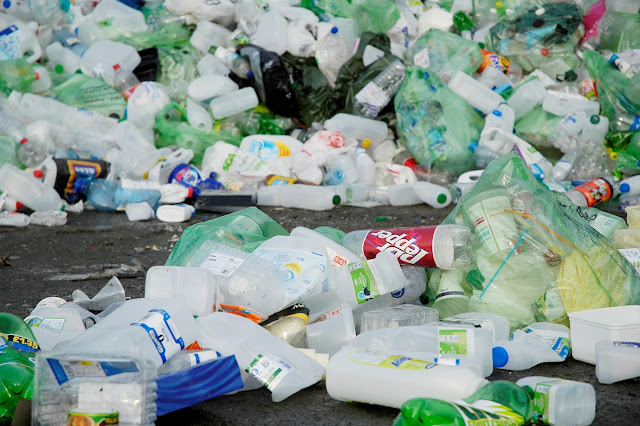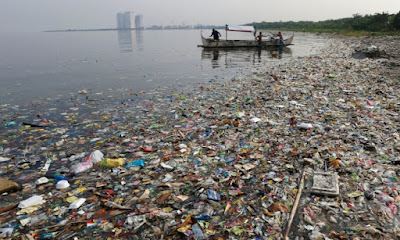The Future of Plastics Recycling
We have come a long way from
throwing everything in landfill, but when it comes to recycling plastics, there
are many confusing issues that leave many of us wondering what plastics can
actually be recycled.
 |
| Image credit: The Recycler |
With the recent news that more and more of the household waste we send to be recycled is getting rejected by recycling centres due to low quality of recyclate materials, many are looking out for industry initiatives to help clear the air and figure out what exactly the state of play is.
As you know, there are tonnes of different plastics out there, but many Materials Recovery Facilities (MRFs) will only take plastic bottles (without the tops). This message is taking a while to sink in, and meanwhile we are all drowning in plastic waste while current market demands are so limited.
So where does our industry
stand on the relatively low levels of plastic recycling? In 2015, an initiative
was set up by the Waste Reduction Action Programme (WRAP), a government-backed
charity that works with businesses and industry to reduce waste through the use
of best practices. What does this mean for the future of recycling plastic?
The aim is to recycle
57% of all plastics packaging by 2017, according to the
sector-wide agreement generated by the PIRAP scheme, but last year the figure
was only 38%.
Current market volatility means
that creating a sustainable path towards plastic usage is far from easy as
commodities such as the oil price dictate how much value there is in recycling
certain plastics.
This is where the Plastics
Industry Recycling Action Plan (PIRAP) comes in, with around 50 signatories so
far adding their support, in an effort to produce a framework for greater
consistency including informing consumers what we should be doing with
plastics, plus implementing concerted strategies to reduce unnecessary waste
within the supply chain.
One of the latest big
players to sign
up to the PIRAP scheme is The Co-operative, who became the
first retailer to back the PIRAP Plan. The Co-operative’s environment manager,
Iain Ferguson said they are “proud” to be involved, noting that the retailer
acknowledges the significance of making sure “everyone plays their part in increasing
plastic packaging recycling.”
Since coming into effect
last year, Helen Jordan of the British Plastics Federation says that “...big
steps have already been taken, by uniting the supply chain, which shows how
each stage of the supply chain can impact on recycling”, whilst adding that the
BPF hope that more companies and organisations will also sign up to the PIRAP
scheme.
There are many exciting
developments in terms of finding new and innovative ways to use plastics and
make them more degradable. In fact, the global plastics additive market,
(adding components to increase performance) is set to be worth a staggering $64.6billion
by 2020, which shows just how much the industry is investing in
innovation.
One
such progression is a type
of plastic known as oxo-biodegradable, where the plastic breaks
down after its useful shelf life. Thanks
to a two-step process polyolefin
chemical compounds allow the plastic to ‘oxo-degrade’ to short-chain oxygenated
molecules which can then be broken down by micro-organisms such as bacteria and
fungi.
If you are a business in
Greater Manchester trying to figure out where you should be recycling your
plastic waste, get in touch with us here at EMERGE Recycling, and give us a
call on 0161 223 8200 or check
out our website.



Comments
Post a Comment